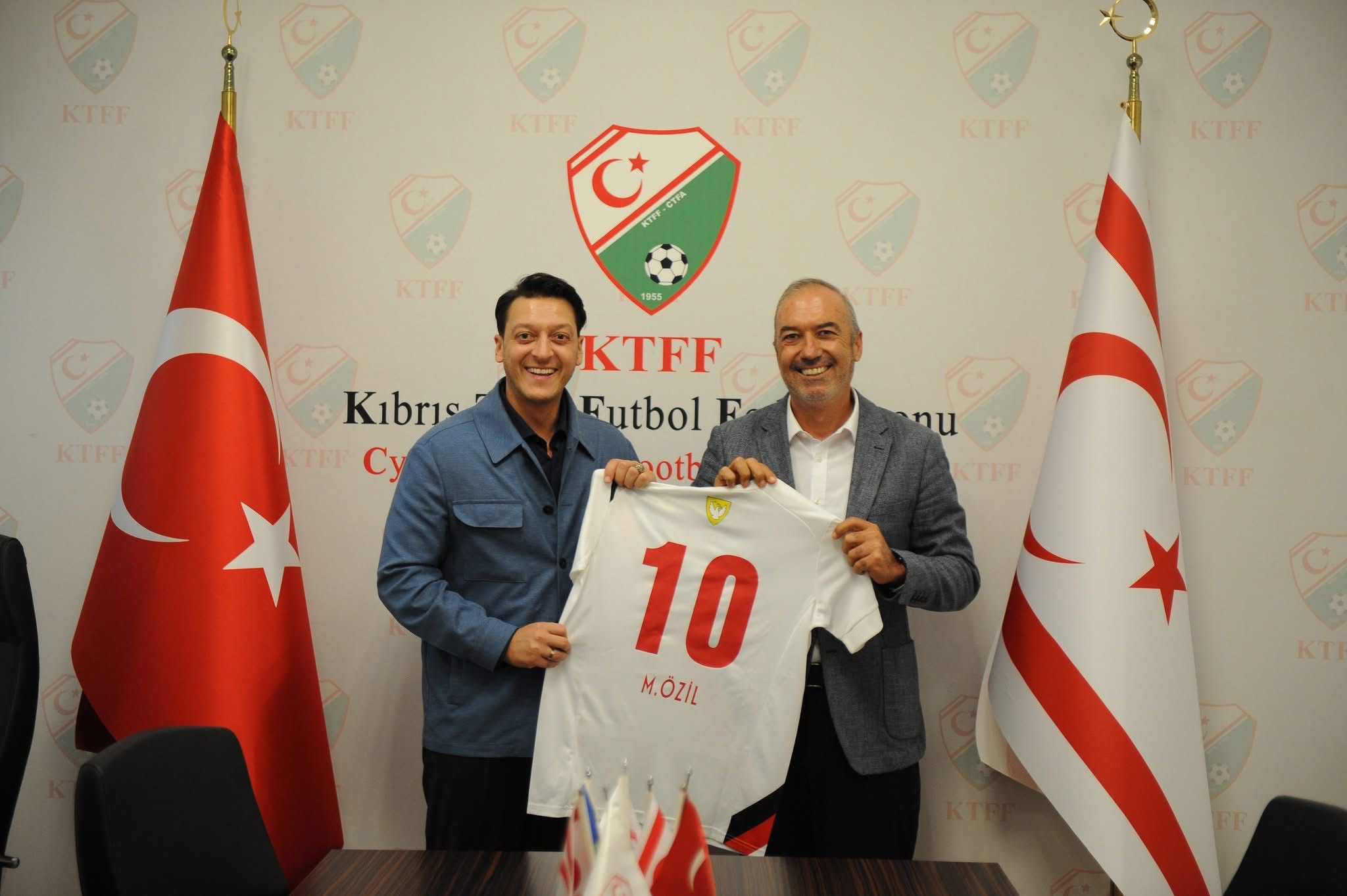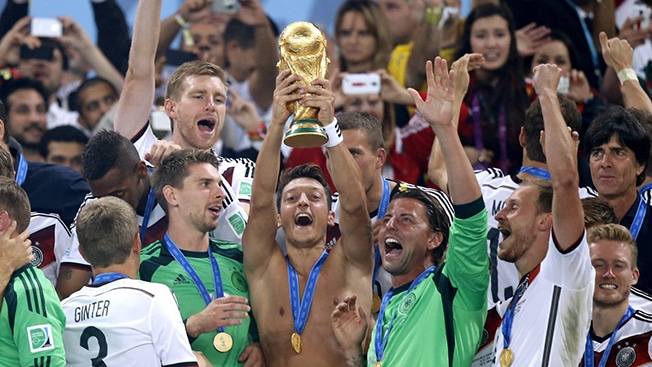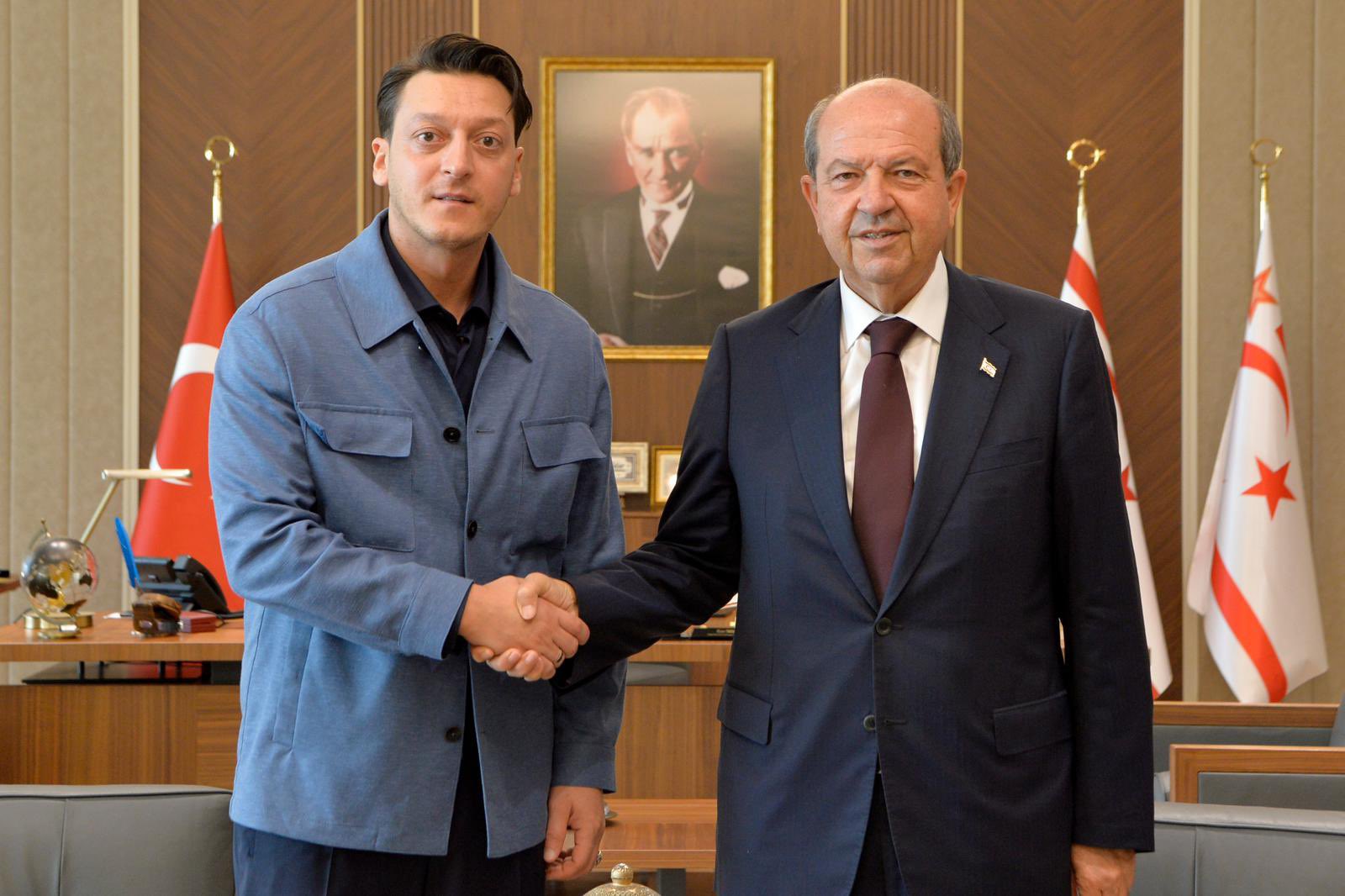World Cup-winning former footballer Mesut Ozil visited northern Cyprus to boost incumbent Turkish Cypriot leader Ersin Tatar’s election campaign with less than three weeks to go until election day.
He was welcomed by Tatar at his official residence in the northern sector of Ayios Dhometios, with the meeting being described as “cordial”.
According to Tatar’s office, Tatar “briefed Ozil on the Cyprus issue and discussed the new policy he has developed in collaboration with the motherland, the Republic of Turkey”, that policy being a two-state solution to the Cyprus problem.
“Tatar said that a federal solution is now dead and explained that he is working to implement a two-state solution based on sovereign equality,” his office added, before stating that he had “explained that the October 19 elections are also being fought between a federal solution and a two-state solution”.
His office added that Ozil had “emphasised the importance of statehood and expressed his support for the two-state solution model proposed by Ersin Tatar”, and that he had also “wished Tatar success”.
Later during his visit, Ozil visited Cyprus Turkish Football Association chairman Hasan Sertoglu, who presented him with a jersey of the Turkish Cypriot communal football team.

He then held an event in the courtyard of the Yunus Emre Institute building in Nicosia’s old town, where he spoke to a crowd of people who had gathered, and also held open telephone calls with both Turkish President Recep Tayyip Erdogan and Real Madrid footballer Arda Guler.
Erdogan made reference to the forthcoming Turkish Cypriot elections and the need to “win” them during his call, while Guler showed his face to the crowd during a video call.
His final engagement in Cyprus was to travel to Famagusta to attend a Turkish Cypriot Super League game between defending champions Magusa Turk Gucu and Cihangir, of the Nicosia district village of Epicho.
He appeared on the pitch after the game, but his presence was not enough to inspire the hosts and defending champions, who fell to a lacklustre 5-2 defeat and remain winless so far this season, with manager Hasan Topaloglu resigning after full time.
In addition, he shared a post to his social media evaluating his trip to Cyprus, writing that “for years, there have been sports embargoes imposed on the Turkish Cypriot population”, and that as such, “it is now time to act”.
“During my visit to the TRNC, I met with young athletes and President Ersin Tatar to discuss what can be done to lift these embargoes. Sport is a right for all,” he wrote.

Ozil was born in the German city of Gelsenkirchen to parents of Turkish descent, with his grandfather having migrated to the country from the Turkish Black Sea city of Zonguldak.
He began his football career at Schalke 04, before moving on to Werder Bremen, and becoming a household name by starring for the German national team at the 2010 World Cup, where the country finished in third place.
His World Cup performances earned him a move to Real Madrid, where he spent three years, before moving to Arsenal for what at the time was a club record fee, and helping the club win the 2014 FA Cup – their first trophy in nine years.
That summer, he played a pivotal role as Germany won their fourth World Cup and their first since reunification, though his career never reached such heights again.
While the next four years of his career saw domestic success in the form of two more FA Cups for Arsenal, the buildup to the 2018 World Cup was fraught with controversy after he and fellow Turkish-German footballer Ilkay Gundogan met Recep Tayyip Erdogan.
Some accused Ozil of “lacking loyalty” to Germany in the aftermath of the meeting, and criticism only grew when Germany were knocked out of the World Cup at the group stage. He never played for Germany again after the World Cup.
The following year, Erdogan was his best man when he married actress Amine Gulse, and when he saw his game time limited at Arsenal, he moved to Turkish side Fenerbahce.

Following a year and a half at Fenerbahce and another year at cross-city rivals Istanbul Basaksehir, he retired from football, with his Erdogan links seeing him rise through the ranks of Turkey’s ruling AK Party thereafter, being elected to the party’s central decision-making board in February this year.
Given this to be the case, critics of his trip to Cyprus have described his visit as “intervention” in the Turkish Cypriot election on the part of Turkey’s government, particularly in light of Erdogan’s open statements in favour of a two-state solution, favoured by Tatar, and rejection of a federal solution, favoured by his challenger Tufan Erhurman.
Former Turkish Cypriot ‘MP’ Okan Dagli said of Ozil’s visit that “these elections have lost their legitimacy before they have even happened, because what is happening here is not an election, it is a flagrant violation of the will of those who have fought for democracy, existence, and self-governance on this island for decades”.
He added that the north’s ruling party the UBP “boasts of this intervention as if it were a victory” and is “willingly surrendering to being manipulated, humiliated, and dehumanised, effectively denying its own existence”.






Click here to change your cookie preferences